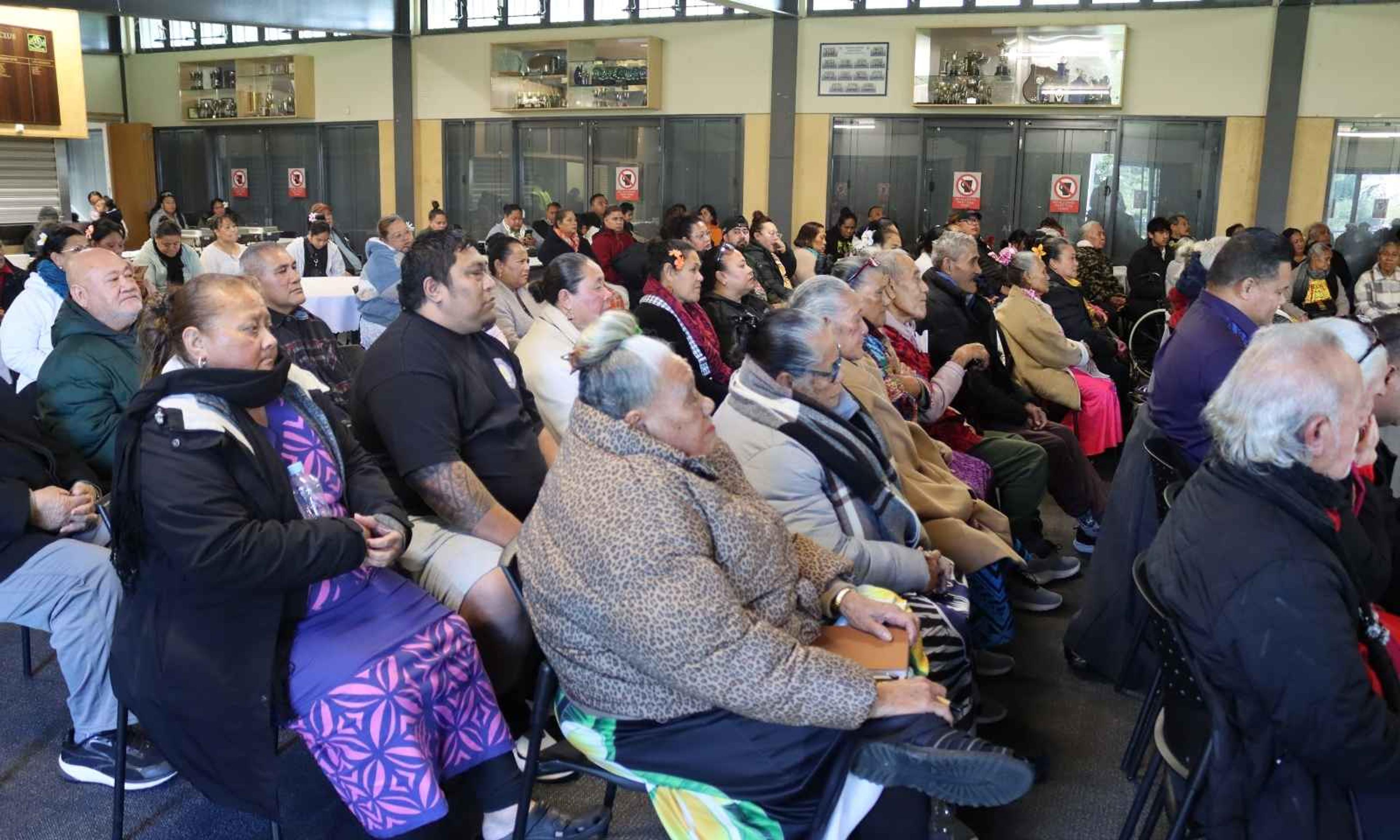

Joanna Bourke, CEO of Pacific Cooperation Foundation, participated in a panel discussion centred around aid and the needs of Pacific communities.
Photo/PCF
Aid is not a handout, it’s an investment - CEO
A Pacific leaders forum in Aotearoa calls for a new perspective on international support.


One million children in the Pacific without a birth certificate - SPC

Tongan royals on historic visit to Fiji, strengthening ties and celebrating heritage

Still got it: 71-year-old athlete inspires at Pacific Mini Games

Major celebration in Manurewa marks restoration of Sāmoa citizenship rights

One million children in the Pacific without a birth certificate - SPC

Tongan royals on historic visit to Fiji, strengthening ties and celebrating heritage

Still got it: 71-year-old athlete inspires at Pacific Mini Games
A Pacific leader says aid should be viewed as an investment in people rather than charity, especially for Pacific communities.
The message emerged during a forum focussed on New Zealand-funded projects. Community leaders from Kiribati, the Solomon Islands, and Vanuatu gathered in Aotearoa last week for ChildFund’s panel discussion titled ‘Aid is Under Attack - Meet Pacific Community Leaders Implementing Kiwi-Funded Aid’.
The event aimed to showcase community-led development projects funded by the New Zealand public and the Ministry of Foreign Affairs and Trade (MFAT), while also addressing the evolving landscape of international aid and its geopolitical implications.
Key speakers included Sharon Inone, CEO of Greenergy Pacific and National Geographic Society’s Explorer of the Year, Robert Oliver Global Executive Director and host of Pacific Island Food Revolution, and Joanna Bourke CEO of the Pacific Cooperation Foundation (PCF).
Speaking to John Pulu on PMN Tonga, Bourke says the event showcases the success stories and initiates a necessary conversation about the transformation of aid.
The PCF, a private-public NGO established in 2002, strengthens connections between Aotearoa New Zealand and Pacific nations by promoting mutual understanding, cooperation, and prosperity across the region.
“It's great that Josie Pagani, who's the CEO of Child Fund, has brought in these community leaders from Kiribati, the Solomon Islands and Vanuatu to talk about their projects that are funded through New Zealand Aid,” Bourke says.
She rejects the notion that “aid is under attack”, saying that aid must be seen as investing in people rather than as a handout. She says it is encouraging to see aid is beginning to transform.
“It is about building stronger relationships with our community, who are the direct beneficiaries of aid, and look at it as an investment. Also ensuring that our communities and direct beneficiaries are at the decision-making table when it comes to aid.”
Listen to Joanna Bourke’s full interview below.
US aid cuts
Bourke also discussed broader shifts in international aid, pointing out that the United States’ reduction of “80 per cent of their aid programmes” impacts around 100 projects across the Pacific, creating a vacuum which other geopolitical actors could fill.
“This is where the geopolitical talanoa comes in: who's going to fill that void? We know who's going to fill that void because some of those big countries are floating around the Pacific. That's where the change is coming from and for our Pacific people, climate change is still big up there. A lot of that US aid funded climate resilience, climate projects and programmes.”
She says New Zealand and Australia, the largest aid providers to the Pacific, have adapted their approaches by learning to listen to the region for solutions rather than “coming up with preconceived ideas or solutions that they feel will work”.
In March, Australia committed A$2 billion (NZ$2.2 billion) to Pacific aid in its 2025-26 federal budget, representing nearly 40 per cent of Australia’s total Official Development Assistance (ODA) budget.

In March, Australia’s government stepped up aid for the region amid US cuts, with A$2 billion (NZ$2.2b) allocated to address critical needs in the Pacific. Photo/Supplied
A big shift
“There's a big shift in where the pool of money is coming in that funds projects. New Zealand and Australia, obviously through their [Official Development Assistance] budgets, set aside a percentage that comes into the Pacific,” Bourke says.
“Economic prosperity is a big thing because even though we've been through Covid, the Pacific is still suffering from other setbacks that affect us in the global economy. So we need to start looking at how we build that economic resilience, how we build the security and security doesn't just always mean militarisation.
“Security is other things like labour mobility, climate security, security of our communities to be safe and to have sovereignty over their own lives, their own sustainability and also on livelihoods.”
Bourke says these initiatives deserve more attention, not only for their outcomes but also for what they represent.
“Our people need to be very careful about how they look at aid and they don't see it as a handout. It is about honouring our mana, investing in our vision as Pacific people, what we want for our countries, and the diaspora have a very large role to play in that.”